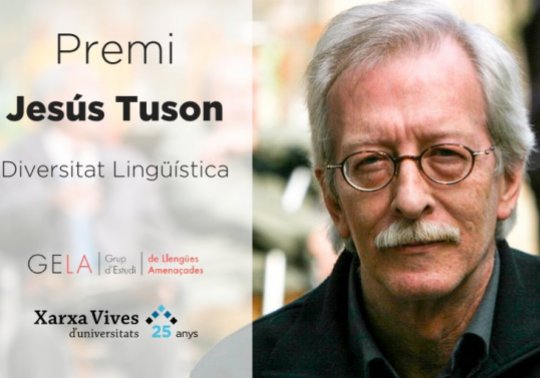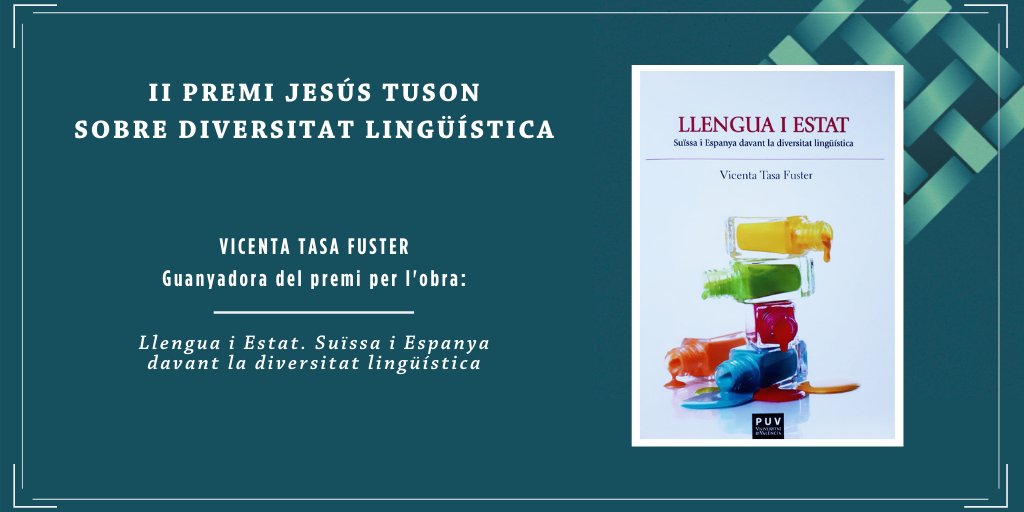
The Director of the Chair for Linguistic Rights Vicenta Tasa was awarded the II Jesús Tuson Prize on linguistic diversity for her work Llengua i Estat.
Today, the Director of the Chair for Linguistic Rights Vicenta Tasa was awarded the II Jesús Tuson Prize on linguistic diversity for her work Lengua y Estado. Suiza y España ante la diversidad lingüística, published in 2019 on Publications of the Universitat de València.
Jesús Tuson (1939-2017) was a full university professor of general linguistics at the University of Barcelona. Besides his teaching work, he wrote an extensive essay-based work that, in later years, was fundamental to know and recognise the value of linguistic variety. Works such as El lujo del lenguaje, where he presents language as an universal human ability; Mal de lenguas, full of arguments against linguistic prejudice; or Patrimonio natural, all of which (among others) were sources of inspiration for many linguistic variety defenders.
Given that defence only makes sense if based on knowledge, this prize is announced with the intention of promoting research and the transfer of humanity’s linguistic heritage knowledge. More information on the prize at: https://www.vives.org/programes/llengua2/premi-jesus-tuson/
The book Lengua y Estado addresses linguistic reality by comparing Switzerland and Spain and proposing changes that will bring us closer to the Swiss model. Spain isn’t a nation state with a tradition based on respecting its own linguistic variety. The 1978 Constitution represented a positive and important advancement, but a very limited one. The linguistic hierarchy principle dominating the whole Spanish linguistic regulation hindered (partly due to the biased interpretation of the Constitutional Court) linguistic policies within all the State public authorities and a truly equal linguistic legislation, as well as the linguistic safety of Spanish speakers of a non-Castilian language.





